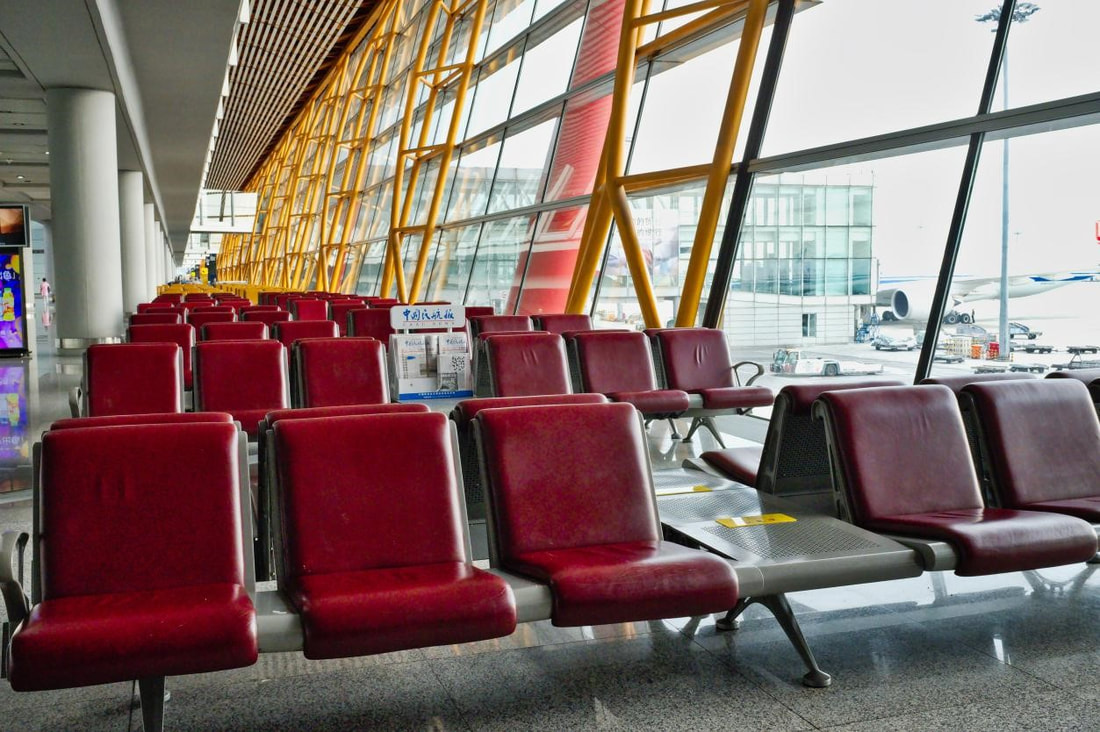|
|
|
The COVID-19 pandemic profoundly transformed people’s lives, identities and practices throughout the world. It had particular effects on the group of international students who usually move frequently between home country and study destination. When the pandemic hit their study destinations in 2020, they had to take immediate action and plan migratory trajectories accordingly.
Chinese international students (CIS) also experienced a nationwide pandemic control policy at home that caused continuous travel constraints on international flights and passengers landing in China. The domestic policy had a profound impact on their migration aspirations – to remain in the study destination or to return home. Simultaneously, students reconfigured their perceptions of homeland. Our research, as detailed in our Identities article, ‘Migration aspirations and polymorphic identifications of the homeland: (Im)mobility trajectories amongst Chinese international students amidst COVID-19’, includes semi-structured interviews with 33 CIS studying in 23 cities of 10 European countries (including the United Kingdom). We aim to understand how students’ identifications of homeland – a cognitive assemblage of emotions, commitments and reflections towards their home country – intersect with their migration aspirations.
For some CIS, patriotic sentiments were amplified by Chinese embassies providing medical supplies and emotional support for students following the outbreak of the pandemic in their study destinations. This attachment to the homeland further served as a driving force for the students to remain immobile abroad, albeit temporarily, as a response to the domestic government’s call to curb the import of infested cases from overseas.
Some students voluntarily chose immobility based on comparison of the coronavirus control policy between their home and host country. They felt safe to stay abroad when the local authorities in their study locations tightened up the control of the pandemic, which reminded them of the pandemic prevention measures taken in China. By contrast, encountering intensified Sinophobic discourses and actions made some unwilling to stay abroad. In our research, approximately one-third of participants had experienced verbal or physical assaults that associated their Chinese ethnicity with the virus. Many students thus felt unwelcome in their host society. Students, particularly those from less privileged family backgrounds, felt ‘trapped’ in their host country and aspired to leave. This was primarily because the costs of the return trip (including a 14-day quarantine in designated hotels and multiple nucleic acid tests) were much higher than their expectations. However, some students interpreted their immobility as a contribution to the Chinese government’s efforts to cap the number of international passengers arriving in the country. They highlighted the need for individual interests to give way to the collective ones. Rather than being cynical about Chinese national control over transnational mobility, they managed to harmonize their own migration aspirations with national interests. By contrast, some students expressed mixed feelings towards voluntary and involuntary immobility. They accepted a sojourn overseas whilst aspiring to return to China if infections surged in their country of residence. Students emphasized their rights and freedom to travel home as Chinese citizens. Nevertheless, their expectations about these legal rights collided with the indefinite travel constraints on overseas nationals heading home. In some cases, the voluntariness of staying put enabled CIS to move to a sense of involuntariness. When urgent demands meant they needed to go home, some students dismissed their previous commitment to stay overseas. Rather, they exercised ‘an ethic of self-care’ that pragmatically foregrounded individual development over the collective interests of the nation. In brief, identifications are not essentially fixed, but malleable, convertible and constantly in formation. As for CIS, various forms of identities amidst COVID-19 were distributed over a spectrum of dedications to homeland – from passionate to pragmatic allegiance; from attachment to estrangement from the homeland; and from yielding to collective interests to devotion to self-interest, impacting their migration aspirations during the pandemic.
Image credit: Photo by Eric Prouzet on Unsplash
Blog post by Xiao Ma, East China University of Science and Technology, China and Bingyu Wang, Nankai University, China
Read the Identities article: Xiao Ma, Bingyu Wang & Xuesong He. Migration aspirations and polymorphic identifications of the homeland: (Im)mobility trajectories amongst Chinese international students amidst COVID-19. Identities: Global Studies in Culture and Power. DOI: 10.1080/1070289X.2022.2083411
Read other relevant Identities articles:
Chinese immigrant youth identities and belonging in Prato, Italy: exploring the intersections between migration and youth studies Cosmologies and migration: on worldviews and their influence on mobility and immobility Yearning for faraway places: the construction of migration desires among young and educated Bangladeshis in Dhaka
0 Comments
Your comment will be posted after it is approved.
Leave a Reply. |
|
Explore Identities at tandfonline.com/GIDE |
|
The views and opinions expressed on The Identities Blog are solely those of the original blog post authors, and not of the journal, Taylor & Francis Group or the University of Glasgow.


